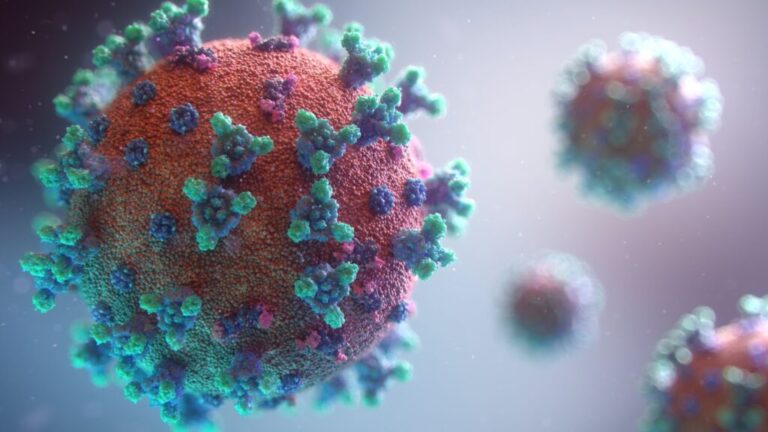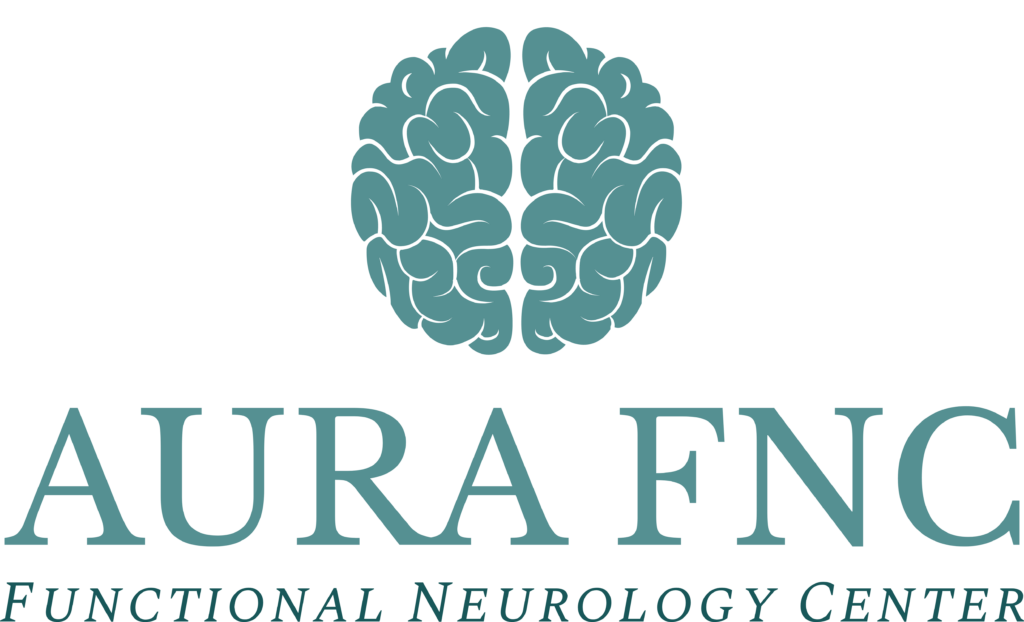What is Long COVID?
Understanding Long COVID and how Long COVID applies to you as a unique individual can help you find the right treatment plan. Dr. Diana Tyler our head Functional Neurologist at Aura Functional Neurology Center (Aura FNC), educates on the symptoms, treatments, causes, types, questions, and answers that surround Long COVID to offer a better understanding of this condition and how we approach treatment programs for Long COVID at Aura FNC.

Dr. Diana Tyler DC, DACNB
Founder of Aura Functional Neurology Center. Board Certified Chiropractic Neurologist with experience treating Long COVID at the Aura FNC office located in Cumming, Georgia, right outside of Atlanta. Graduate of Palmer College of Chiropractic and Diplomate of the American Chiropractic Neurology Board.
Long COVID is also commonly known as Post-Acute Sequelae of SARS-CoV-2 infection (PASC) and is associated with lingering symptoms and side-effects that many people still have who contracted COVID-19 following the 2020 COVID-19 pandemic. You may also hear the terms: long-haul COVID, post-COVID conditions (PCC) or post-acute COVID-19.
Long COVID, also known as post-acute sequelae of SARS-CoV-2 infection (PASC), is a condition where individuals experience symptoms after recovering from acute COVID-19 illness. The symptoms can persist for weeks or months, including fatigue, brain fog, difficulty concentrating, memory problems, headache, dizziness, syncopal episodes, tachycardia and neuropathic pain.
Studies have shown that COVID-19 can affect the central nervous system (CNS) and cause neurological symptoms. The understanding is that the virus can enter the brain and cause inflammation, which can lead to a range of neurological complications. These complications include encephalitis, stroke, seizures, Guillain-Barre syndrome, post-viral dysautonomia, and POTS.

Brain rehabilitation may be a potential treatment for individuals with Long COVID experiencing neurological symptoms. Neurological treatment involves various techniques to promote neuroplasticity that involve a combination of active and passive therapies. The purpose of active treatments is to strengthen the necessary brain areas and passive therapies, including popular technologies in brain rehabilitation- such as Mild Hyperbaric Oxygen Therapy (HBOT), photobiomodulation, and neuromodulation.
Studies have shown that brain rehabilitation can effectively improve cognitive function, memory, attention, and executive function in individuals with neurological conditions, such as often seen in stroke and traumatic brain injury. Brain rehabilitation is beneficial for individuals with long-term COVID-19 infection who are experiencing similar symptoms.
Long COVID Symptoms
In individuals with Long COVID, persistent fatigue can be debilitating, impacting daily activities and contributing to a sense of overall weakness.
Shortness of breath may persist, affecting respiratory function and reducing tolerance for physical exertion. Difficulty concentrating, often referred to as “brain fog,” can hinder cognitive abilities, including memory, attention, and problem-solving skills. Muscle and joint pain may endure, causing discomfort and limiting mobility. Sleep disturbances, such as insomnia or disrupted sleep patterns, further compound the challenges faced by those dealing with Long COVID.
These diverse and lingering symptoms underscore the need for ongoing research to unravel the complexities of Long COVID and the importance of providing comprehensive care tailored to the specific needs of affected individuals.
- Brain Fog
- Persistent fatigue
- Shortness of breath
- Difficulty concentrating
- Brain fog
- Muscle and joint pain
- Sleep disturbances
- Headaches
- Loss of taste or smell
- Chest pain or pressure
- Heart palpitations
- Digestive issues
- Skin rashes or discoloration
- Thermoregulation issues
- Mood changes
- Adrenaline surges
- Dizziness or lightheadedness
- Cognitive impairment
- Worsening of symptoms after physical/mental exertion
Long COVID Rehabilitation Programs
Dr. Diana Tyler offers Long COVID treatment in the form of a 5-day, 10-day, or 15-day brain rehabilitation program at the Aura Functional Neurology Center office in Cumming, Georgia. These rehabilitation programs are customized to patients based on their symptoms and unique needs. Many of our patients who come for Long COVID treatment at Aura FNC will travel from other cities in Georgia, fly in from other states around the U.S.A., and some will even travel internationally for our Long COVID rehabilitation programs.
Dr. Diana Tyler treats Long COVID from a functional and neurological perspective using neuroplasticity and brain training to positively influence the complex interactions between genetics, environmental factors, and changes in brain chemistry that surround Long COVID. She focuses on strengthening the area of the brain dysfunction that contributes to your Long COVID symptoms while also addressing the contributing structural and metabolic factors.
Long COVID treatment at Aura FNC involves a combination of lifestyle and dietary modifications, nutritional support, neurological rehabilitation, and treatment of the cervical spine. Our approach is based on Chiropractic Functional Neurology and the latest research in clinical neuroscience.
Aura FNC, a private practice with limited capacity, accepts a restricted number of patients annually for our neurodevelopmental rehabilitation programs. This allows for personalized 1:1 sessions with Dr. Diana Tyler, offering 15, 30, or 45 hours of individual treatment across 1, 2, or 3 weeks in a private office setting.
Long COVID Causes
The causes of Long COVID are still under investigation, and researchers are working to understand why some individuals experience lingering symptoms after recovering from the acute phase of COVID-19. While the initial infection is caused by the SARS-CoV-2 virus, the mechanisms behind Long COVID are complex and multifaceted. Several factors may contribute to the persistence of symptoms, including the virus’s direct impact on various organs and systems, the dysregulation of the immune response, structural and functional changes in the brain, and potential lingering viral reservoirs in the body.
In Long COVID cases, the immune system might continue to react abnormally, leading to chronic inflammation and ongoing symptoms. Additionally, the virus’s ability to directly affect organs such as the lungs, heart, and brain could play a role in the prolonged health challenges faced by individuals with Long COVID. Ongoing research aims to provide more clarity on Long COVID causes, which will help to provide insights for tailored treatments and management strategies.
Long COVID Triggers
The triggers for Long COVID are not fully understood, as the condition itself is a complex and evolving area of research. However, some individuals report that their symptoms may be triggered or exacerbated by factors such as physical or mental exertion, stress, or certain environmental conditions. Ongoing research aims to bring a deeper understanding of the relationships between triggers and Long COVID symptoms for a more comprehensive understanding and effective management.
Dr. Diana Tyler will continue to deliver the latest research and education on the topic of Long COVID through the Aura FNC Neuroscience Blog, which can be found using the Blog tab on our Navigation bar at the top of our website. If you have any questions or information to add, please contact us using our Contact Us page or the button at the bottom of this page.
Common Long COVID triggers include:
- Physical or mental exertion
- Stress
- Environmental conditions
- Viral reactivation
- Overexertion
- Certain medications
- Hormonal changes
- Pre-existing health conditions
- Immune system dysregulation
- Prolonged bed rest or inactivity
Types of Long COVID We Treat
Brain Fog
Brain fog is a common symptom reported by individuals with Long COVID, characterized by difficulties in concentration, memory, and cognitive function. This cognitive impairment can significantly impact daily life, underscoring the multifaceted nature of Long COVID symptoms. Persistent brain fog in Long COVID reflects a complex interplay of factors affecting cognitive processes, emphasizing the ongoing challenges individuals may face in their recovery journey.
POTS
Some individuals recovering from COVID-19 may experience post-viral complications, including the development or exacerbation of conditions like Postural Orthostatic Tachycardia Syndrome (POTS). POTS is a disorder that affects the autonomic nervous system, causing a variety of symptoms, particularly when a person stands up. The condition is characterized by a rapid heart rate that occurs upon standing, leading to dizziness, lightheadedness, and sometimes fainting.
Neurological Symptoms
Neurological symptoms are prevalent in Long COVID, encompassing a range of issues such as persistent headaches, brain fog, and disturbances in cognitive function. These manifestations highlight the involvement of the nervous system and emphasize the need for a thorough understanding of Long COVID's impact on the brain. Seeking specialized neurological evaluation and care is crucial for individuals grappling with these persistent neurological challenges.
Cardiovascular Symptoms
Cardiovascular symptoms in Long COVID can manifest in various ways, ranging from palpitations and chest pain to abnormalities in heart rate and blood pressure. These symptoms underscore the multi-systemic impact of the condition, requiring comprehensive evaluation and management. Individuals experiencing cardiovascular manifestations often need to seek medical attention to address potential implications for long-term health.
